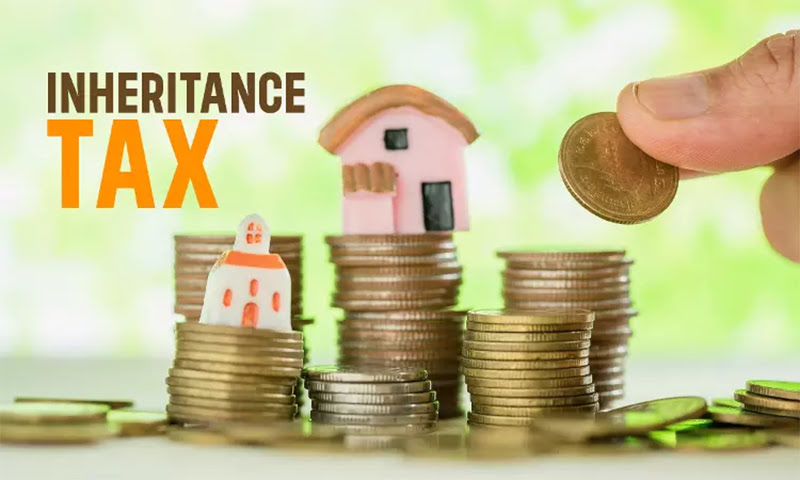There is currently no tax imposed on the estate of the deceased or on the person who inherits the asset when it is passed down through a relative in India. This tax is imposed by many nations. There is some debate about whether India should impose an estate tax, and the answer depends on a number of economic, social, and political factors. The Estate Duty Act of 1953 imposed death taxes in India until it was repealed in 1985. This was primarily due to the fact that the actual tax collection exceeded the administrative costs.
Inheritance Tax in India
Proponents of an inheritance tax say that the only reason it should be reinstated is the current disparity in wealth and income. However, opponents argue that such a tax could hinder investment and wealth creation, which would in turn hinder India’s expansion of entrepreneurship and business. Estate or inheritance taxes discourage wealth accumulation in India and encourage migration to countries that do not levy them. Besides, such duties can without much of a stretch outcome in an endless loop of a decrease in reserve funds, ventures and financial extension.
Also Check:-
About Inheritance Tax
It is a for the most part figured out that one’s property and resources (counting genealogical ones) , are given to their lawful beneficiaries – youngsters, grandkids or wards – after they dies. Inheritance tax, likewise alluded as the bequest obligation or passing expense, is imposed on the home of the departed. It is taken out of the estate before it is distributed in accordance with intestate succession laws or a will. If you inherit assets or property from your parents, grandparents, or any other close friend, you must pay inheritance tax in many countries.
Income Tax Implications on Inheritance
In the event of a person’s death, his or her legal heirs would inherit the deceased’s property. Without a doubt, this event is a transfer without compensation. As a result, it could be treated as a gift for income tax purposes. In any case, the Income Tax Act, 1961, explicitly bars the exchange of resources under will or legacy from the domain of gift tax. As a result, inheritance-derived property is exempt from taxation under the law.
Tax on Subsequent Sale
You become the owner of a property when you inherit it, and you can choose to sell it later. You will also receive the capital gain or loss as the legal heir in this manner. Further, the holding period (period for which the property was held by you and the departed) will decide whether capital additions will go under long haul capital gains tax or transient capital increases tax. The inherited property frequently provides the owner with income in the form of rent, interest, or other forms. The profits go to the heir when he becomes the owner. Thus, the new proprietor should announce this pay and pay taxes likewise.
Also Check:-
Government Reintroduce the Inheritance Tax
A recent report reveals that the wealthiest 1% of India’s population own 58% of the country’s total wealth, exceeding the global average of 50%. Concerning is this expanding economic gap. The introduction of estate duty could help maintain economic equilibrium and prevent wealth concentration. Notwithstanding, taking into account that gift tax as of now applies to many exchanges without installment, any new inheritance tax should stay away from twofold tax collection.
Challenges if Inheritance Tax Reintroduction
Numerous Indian organizations are family-run, so bringing back bequest obligation could block the country’s monetary development. This is because some promoters from India may decide to relocate their businesses or change where they live in order to avoid inheritance taxes. Also, some contend that it’s unreasonable to force inheritance tax on resources.
Calculation of Inheritance Tax
The total market value of all assets owned by the deceased at the time of their death must be determined before inheritance tax can be calculated. All assets, including real estate, investment holdings (stocks, bonds, mutual funds, etc.), current bank balances, vehicles, and personal belongings (jewelry, art, and other valuable items), should be included in this evaluation. Applying the current inheritance tax rate is the next step after determining the estate’s net value by subtracting assets from liabilities. A portion of the estate may be exempt from taxation on the basis of thresholds or allowances, or the tax rate may be progressive in proportion to the estate’s value.
Also Check:-
Final Words
A tax imposed on a deceased person’s estate is known as inheritance tax, estate duty, or Inheritance tax. It is taken out of the estate before it is given to the heirs in accordance with the Will or intestate succession laws. Inheritance tax, particular from pay or capital increases tax, straightforwardly focuses on the worth got through Inheritance. While different tax might apply to pay created from acquired resources or likely capital additions upon their deal, the demonstration of inheriting itself sets off no taxation rate in India.
